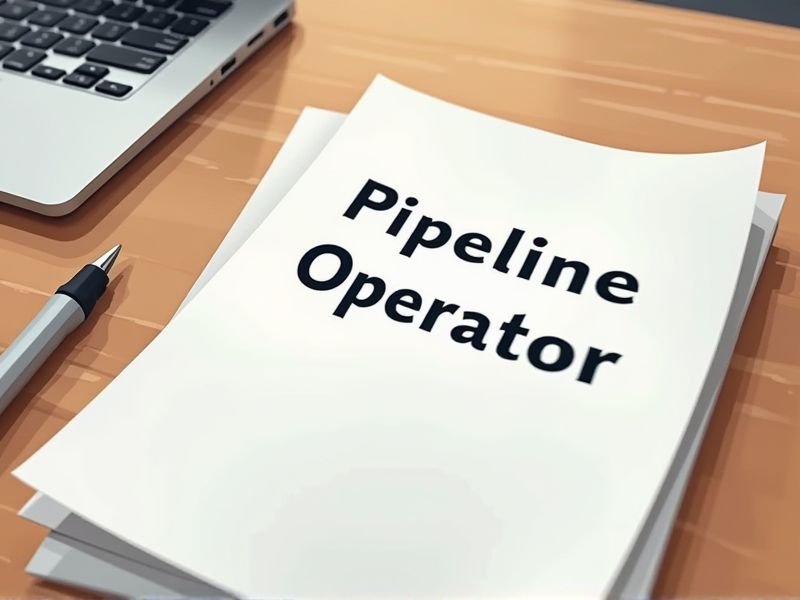
Pipeline Operators manage vital transportation systems for oil, gas, and other substances, making safety a chief concern. Certifications ensure operators possess the skills and knowledge required for handling hazardous materials and complex equipment. These credentials also demonstrate compliance with industry standards and regulations, reducing risks and enhancing operational efficiency. Some important certifications you may need as a Pipeline Operator include:
Pipeline Operator Certification (State Licensed)
Pipeline operators require state-licensed certification to ensure they possess the necessary knowledge and skills to safely manage complex pipeline systems. Certification helps minimize the risk of accidents, thereby protecting public safety and environmental health. Regulatory compliance is achieved through certification, aligning operator standards with state and federal guidelines. Certified operators instill confidence in stakeholders, supporting the reliability and efficiency of pipeline operations.
TWIC (Transportation Worker Identification Credential)
TWIC is necessary for pipeline operators to ensure security in sensitive transportation areas such as ports and regulated pipelines. The credential helps verify the identity and background of operators, reducing the risk of unauthorized access and potential threats. Compliance with the TWIC requirement supports adherence to regulatory standards set by authorities like the Transportation Security Administration. The implementation of TWIC strengthens the integrity and safety of pipeline operations by minimizing security vulnerabilities.
HAZMAT Endorsement Certification
Pipeline operators require HAZMAT Endorsement Certification due to the inherent risks associated with transporting hazardous materials, ensuring they possess adequate knowledge for safe handling. Regulatory compliance necessitates that operators understand and implement safety protocols to prevent potentially catastrophic incidents. Certification allows operators to identify and mitigate environmental and health hazards effectively. It aligns with industry standards that mandate proper training to minimize operational risks and protect public safety.
OSHA 30-Hour General Industry Safety Certification
The OSHA 30-Hour General Industry Safety Certification is necessary for pipeline operators to ensure they comprehend comprehensive safety protocols, which directly reduces workplace accidents. This certification also boosts the operator's ability to identify and mitigate potential hazards effectively, maintaining a safer working environment. It enhances the operator's competence in adhering to regulatory standards, which is essential for compliance and avoiding costly fines. Training received through the certification promotes a culture of safety awareness, leading to improved operational efficiency and reduced downtime.
Confined Space Entry Certification
Pipeline operators often work in environments with restricted access, such as underground pipelines, which increases the risk of accidents and potential exposure to hazardous substances. Confined space entry certification ensures that operators have been trained to recognize and control these risks, minimizing the likelihood of injury or fatal incidents. This certification demonstrates compliance with safety regulations, protecting both the company and its employees from legal and financial repercussions. Proper training enhances operational efficiency by preparing operators for emergency situations, reducing downtime and potential operational disruptions.
CPR and First Aid Certification
CPR and First Aid Certification equips pipeline operators with vital skills to address medical emergencies, such as cardiac arrest or injuries, that could occur in remote work environments. Knowledge of CPR allows operators to sustain life until professional medical assistance arrives, enhancing survival chances. Training in first aid enables operators to manage injuries and prevent complications, ensuring safety and health compliance. Certification demonstrates a commitment to workplace safety, which can influence regulatory assessments and operational credibility.
API 1169 Pipeline Construction Inspector Certification
Obtaining the API 1169 Pipeline Construction Inspector Certification ensures that a pipeline operator is knowledgeable about industry safety standards and regulations, which reduces the risk of accidents and environmental hazards. This certification demonstrates a level of expertise that can enhance the credibility of the operator in the industry, potentially leading to more contracts and projects. As pipelines are integral to energy transportation, having a certified inspector helps in maintaining high construction standards and effective quality control, thus optimizing operational efficiency. The certification is recognized globally, making it easier for operators to work across borders and comply with international standards.
API 653 Aboveground Storage Tank Inspector Certification
API 653 certification ensures that a pipeline operator possesses the necessary expertise to assess and maintain the integrity of aboveground storage tanks, minimizing potential environmental and safety hazards. The certification provides standardized knowledge, which helps in maintaining regulatory compliance and optimizing operational efficiency. Lack of trained inspectors could lead to increased risks of tank failures, causing costly spills and potential fines. Certification equips operators with advanced skills for conducting thorough inspections, which can prevent operational downtime and extend tank lifespan.
Incident Command System (ICS) Certification
Pipeline operators deal with complex emergencies involving hazardous materials, necessitating a structured response framework. ICS Certification provides standardized procedures, streamlining coordination across agencies during crisis management. Federal regulations often require ICS training to ensure that pipeline operators can effectively communicate with emergency services. Effective incident management leads to reduced damage and enhanced public and environmental safety.
Emergency Response Training Certification
Emergency Response Training Certification is necessary for pipeline operators as it ensures they are equipped to rapidly and effectively handle hazardous situations, mitigating potential disasters. The certification process imparts knowledge on identifying and managing pipeline leaks, preventing environmental contamination and costly damages. In the event of an emergency, trained operators can coordinate with first responders and execute evacuation plans, safeguarding public safety. Regulatory compliance with safety standards often mandates this certification, reducing the likelihood of legal penalties and reinforcing public trust in the operation.
Summary
When you obtain certifications as a Pipeline Operator, your skills and knowledge are validated, increasing job opportunities and potential for career advancement. Certified operators typically experience higher demand, as employers prioritize credentialed professionals for critical roles. Enhanced credibility often leads to trust and respect within the industry, fostering professional relationships and networking opportunities. Certification can also result in improved safety practices and operational efficiency, benefiting both your work environment and overall job satisfaction.
